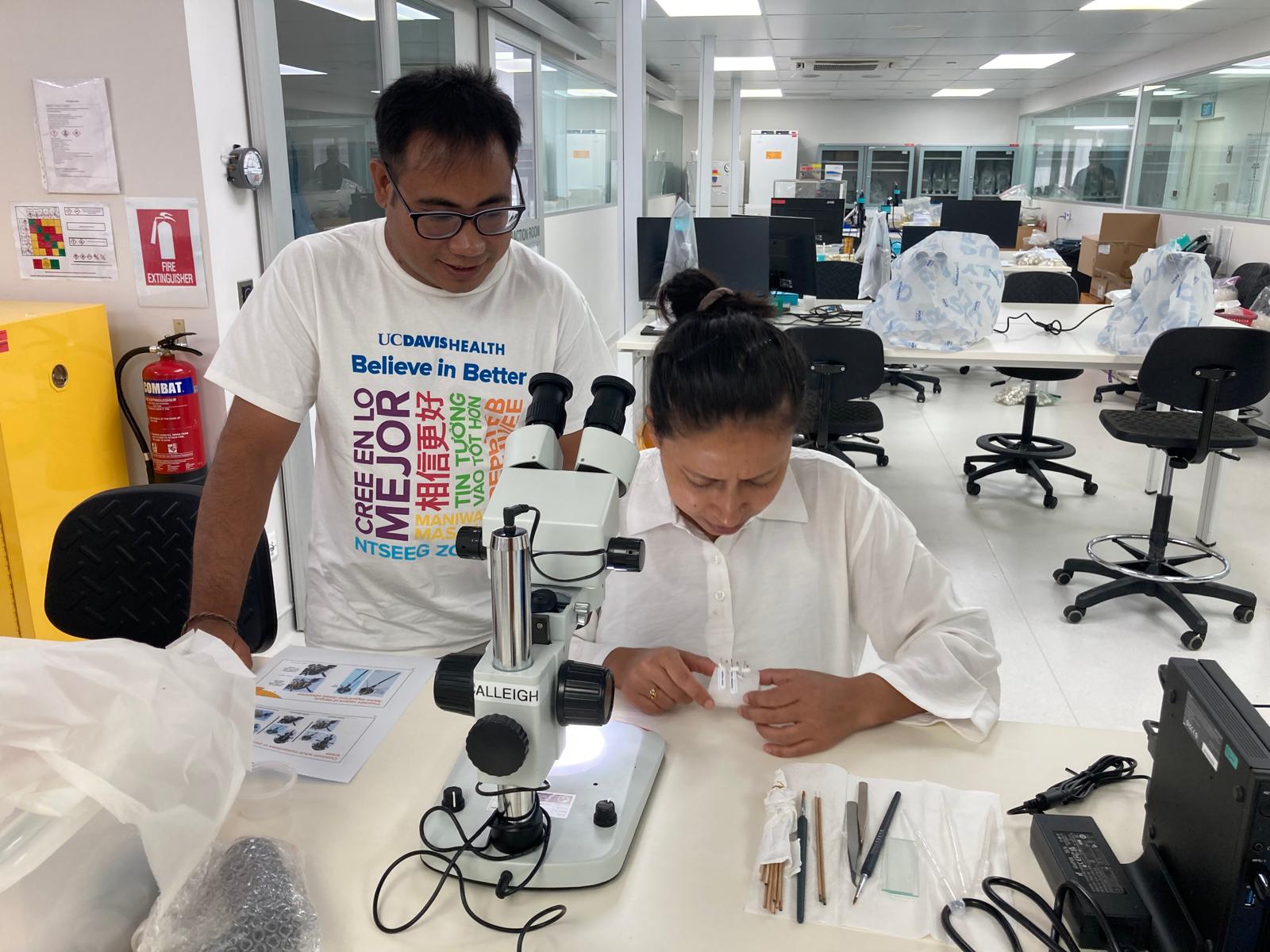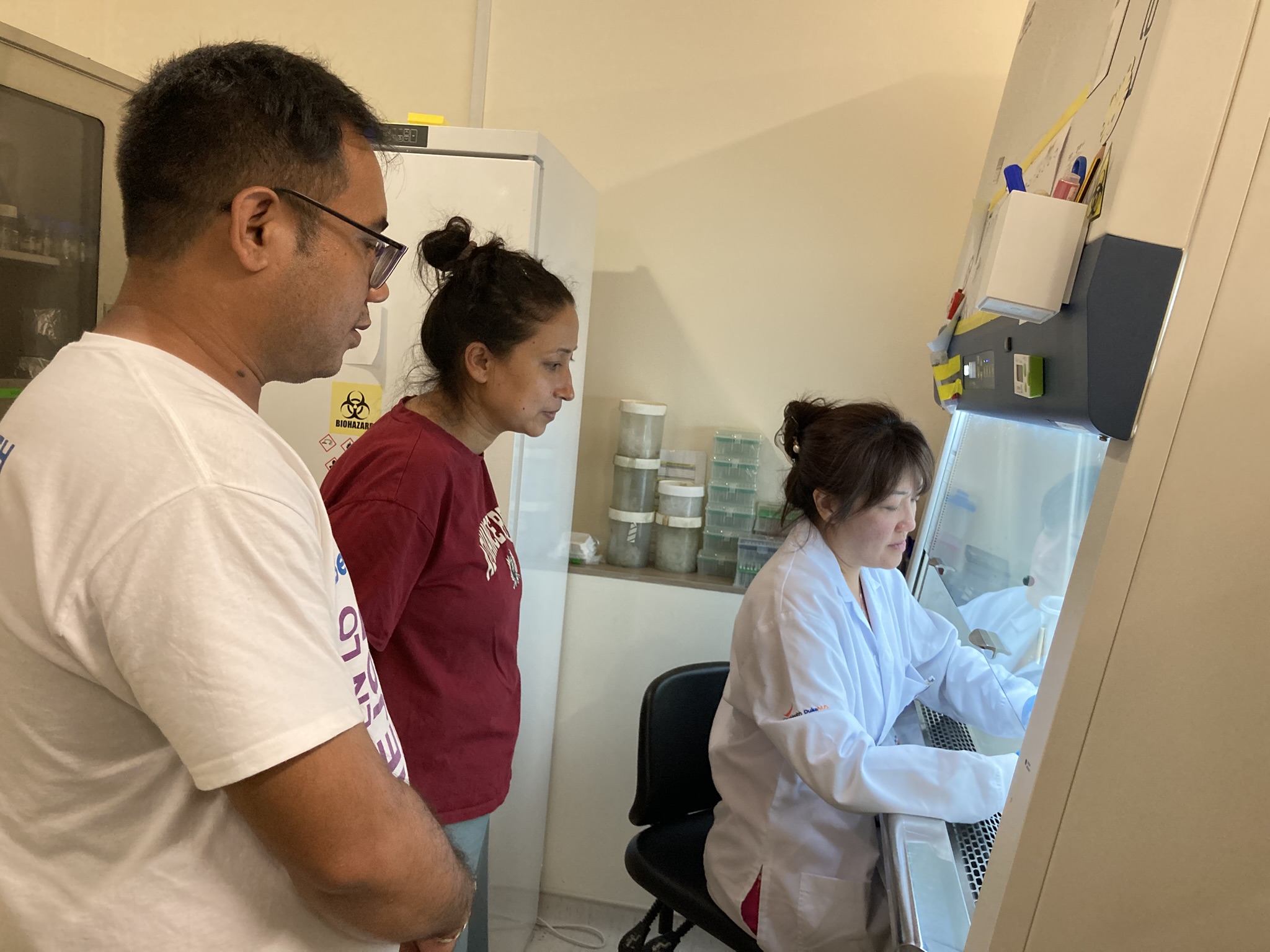Globally, dengue cases have surged dramatically over the last two decades, with Asia estimated to bear 70% of the global disease burden.1 A viral disease transmitted by mosquitoes, many infected people experience mild or even no symptoms, but others can develop severe and potentially fatal complications. With no specific cure available, treatment is limited to supportive care—making early detection and prevention all the more crucial.
Factors like climate change, urbanisation, greater human mobility and the adaptation of mosquito vectors are fuelling the rise of dengue around the world. Just over 20 years ago, in 2004 Nepal recorded its first case of dengue. Since then, outbreaks of this mosquito-borne disease have occurred on a regular basis, with the largest outbreak to date taking place in 2022-2023. Today, dengue is considered endemic in Nepal.
However, significant gaps remain in our understanding of how dengue spreads across the country’s environment and population. For example, Nepal presents a unique example where dengue is being reported in mountainous regions. These trends spell an urgent need for a robust surveillance system that can monitor and address dengue outbreaks early before they spread further. In addition, more research is needed in virus and mosquito biology to understand this rising phenomenon.
To strengthen capacity in dengue surveillance, the Asia Pathogen Genomics Initiative (Asia PGI) through the Duke-NUS Centre for Outbreak Preparedness, in partnership with the Singapore National Environment Agency (NEA) and the Duke-NUS Emerging Infectious Diseases Programme (EID), welcomed two visiting scientists from Nepal for an intensive training programme in Singapore in July 2025. Funded by a Gates Foundation Grand Challenges grant, under Principal Investigator Prof. Dr. Rajeev Shrestha, the aim of this visit was to equip the scientists with the skills to set up a dengue mosquito surveillance research programme back home.

Shiva Ram Naga (left) and Mamata Maharjan (right) from Dhulikhel Hospital, Nepal, gain hands-on experience in identifying mosquito species.
.jpeg?sfvrsn=67dbc314_0)
Caleb Lee from NEA (right) explains how different types of entomological surveillance tools, such as Gravitraps, can be used.
.jpeg?sfvrsn=276b0565_0)
Dr. Jonathan Liew from NEA (left) points out identifying characteristics of mosquito species.
Over the course of six days, Mamata Maharjan and Shiva Ram Naga from the Center for Infectious Disease Research and Surveillance at Dhulikhel Hospital, Nepal, were immersed in hands-on workshops and field visits in Singapore. Hosted by Asia PGI, NEA and Duke-NUS EID, they gained first-hand experience in mosquito trapping, identification, dissection and genomic analysis techniques. Their goal is to return home and establish a dengue mosquito surveillance research program in Nepal.
The training kicked off with an overview of Singapore’s dengue control strategy. At NEA’s mosquito facility, Mamata and Shiva gained hands-on experience with identifying mosquito species, from larvae to adult specimens. They explored the use of various mosquito surveillance tools, such as the Gravitraps – soon to be deployed by their team in Nepal – and learned about different kinds of insecticide and how to monitor resistance. They also took part in a field release for Project Wolbachia, an innovative approach to reducing dengue transmission in Singapore.
Mamata Maharjan (left) and Shiva Ram Naga (right) practicing mosquito dissections at the Duke-NUS EID Insectary laboratory.
Menchie Manuel from Duke-NUS EID (right) explains how mosquitoes are bred at the Duke-NUS EID Insectary laboratory.

Jeanie Wu (right) from Duke-NUS COP demonstrates laboratory techniques for arboviral genomic sequencing.
The programme also included a knowledge exchange session, where Mamata and Shiva presented their plans for Nepal’s surveillance programme and received valuable feedback from NEA, EID and Asia PGI experts. At the Asia PGI Laboratory, Mamata and Shiva learned about molecular techniques and tools for arboviral genomic sequencing. Their training culminated at the EID Insectary at Duke-NUS Medical School, where Mamata and Shiva participated in mosquito breeding demonstrations and practiced skills including mosquito dissections, nano-injections and RNA extraction.
"Challenges truly became opportunities—thanks to the people and partnerships that empowered me. The hands-on training opportunity in Singapore, Duke-NUS Medical School, National Environment Agency (NEA) and Asia Pathogen Genomics Initiative on mosquito identification, dissection, RNA extraction from female Aedes mosquitoes, Wolbachia-based control and Gravitraps surveillance has transformed how I approach dengue entomology. I’m committed to applying these tools and insights to improve vector control efforts and research in Nepal."
– Mamata Maharjan, Research Assistant, Dhulikhel Hospital
"This training provided hands-on experience and in-depth exposure to advanced techniques in mosquito surveillance, species identification, mosquito dissection, and vector control strategies within the broader context of dengue prevention. One of the most impressive aspects of the training was learning about Singapore’s integrated and science-based approach to dengue control, including Project Wolbachia, which exemplifies sustainable and effective public health intervention.
The training also underscored the importance of interdisciplinary collaboration in addressing the complex challenges posed by vector-borne diseases. After this training, we will initiate dengue mosquito surveillance in Nepal as part of the dengue project, aiming to understand the dengue seroprevalence in mosquitoes and in the community, and Aedes mosquito distribution in study sites."
– Shiva Ram Naga, Research Officer, Dhulikhel Hospital
Through this regional collaboration with the Center for Infectious Disease Research and Surveillance, Dhulikhel Hospital, Nepal, Asia PGI and its partners aim to transform public health preparedness – ensuring that communities across Asia are better protected against the growing threat of arboviral diseases such as dengue.
Group photo at the National Environment Agency (NEA) site. From left to right, Dr. Sook Cheng Pang (NEA), Dr. Milly Choy (NEA), Asst. Prof. Mart Lamers (Duke-NUS EID), Caleb Lee (NEA), Mamata Maharjan (Dhulikhel Hospital), Shiva Ram Naga (Dhulikhel Hospital), Menchie Manuel (Duke-NUS EID), Ashley Tsai (Duke-NUS COP/Asia PGI), Dr. Jonathan Liew (NEA), Dr. Chee Seng Chong (NEA).
______________________________
1World Health Organization. Dengue and severe dengue [Internet]. Geneva: WHO; 2025 [cited 2025 Sep 2]. Available from: https://www.who.int/news-room/fact-sheets/detail/dengue-and-severe-dengue